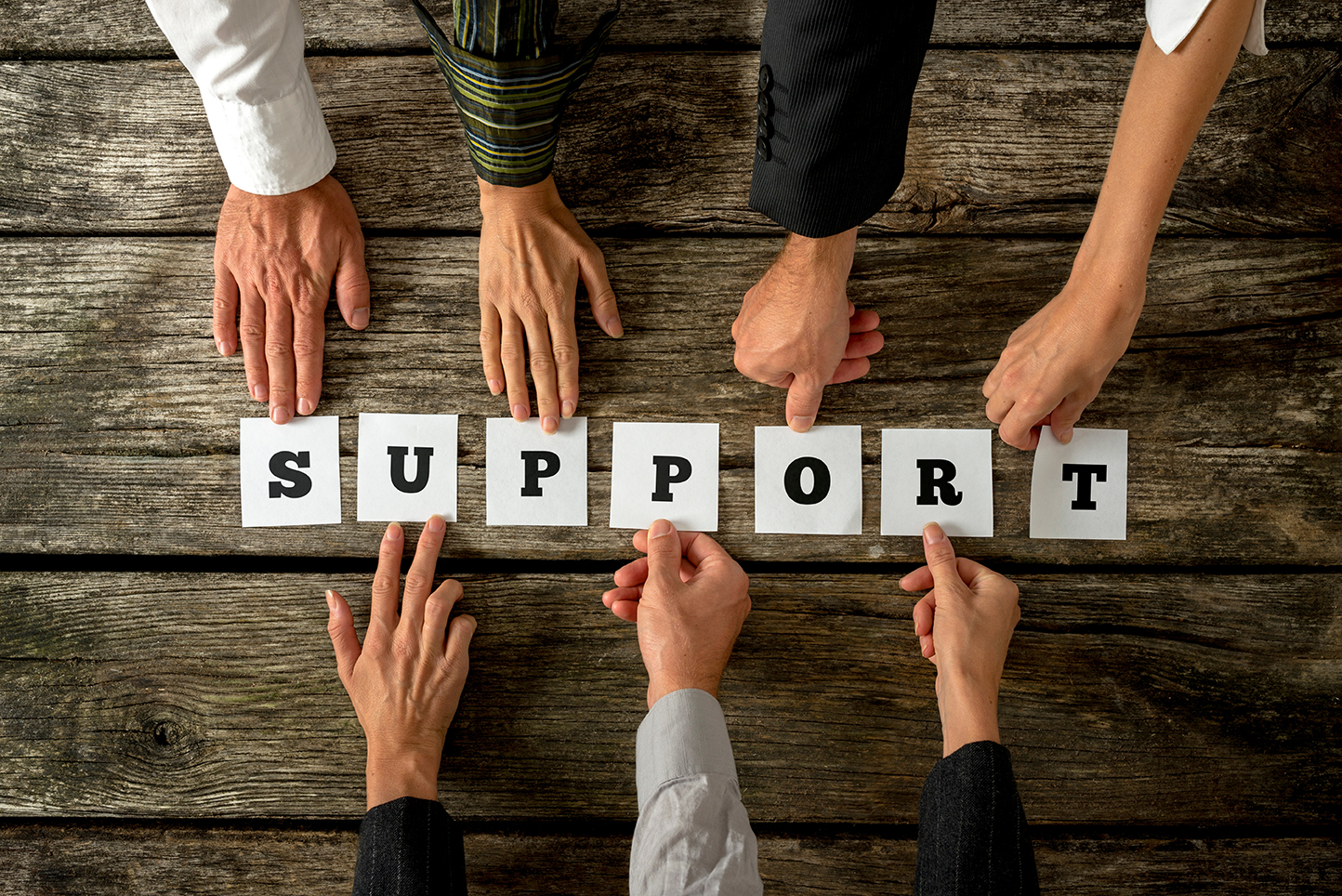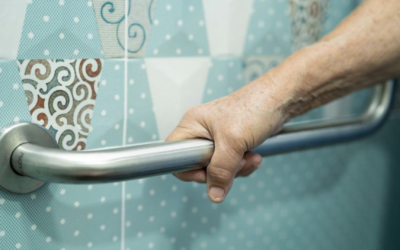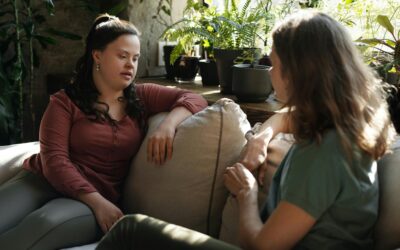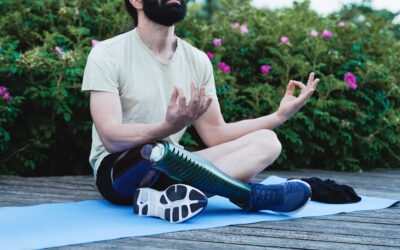(Image: Seven people holding white cards with letters to assemble the word SUPPORT on textured wooden desk.)
Mental Health Awareness Month, celebrated each May, highlights the importance of mental wellbeing for everyone, including those living with disabilities. For individuals with disabilities, mental health challenges can add an extra layer of difficulty to daily life. The Center for People With Disabilities (CPWD) offers Peer Support groups that provide essential resources and community for these individuals, helping them navigate both physical, psychological, and practical life challenges. Peer Support also creates a community among peers for connection and friendship, is a place to share goals and successes, and often includes fun recreational outings and activities.
Peer support is when individuals with similar experiences offer each other encouragement, upliftment, and practical advice. Peer support is based on mutual respect and understanding, fostering a sense of community and belonging. At CPWD, Peer Support groups are led by trained facilitators who may also have disabilities or have worked extensively within the disability community, ensuring they can genuinely empathize with participants.
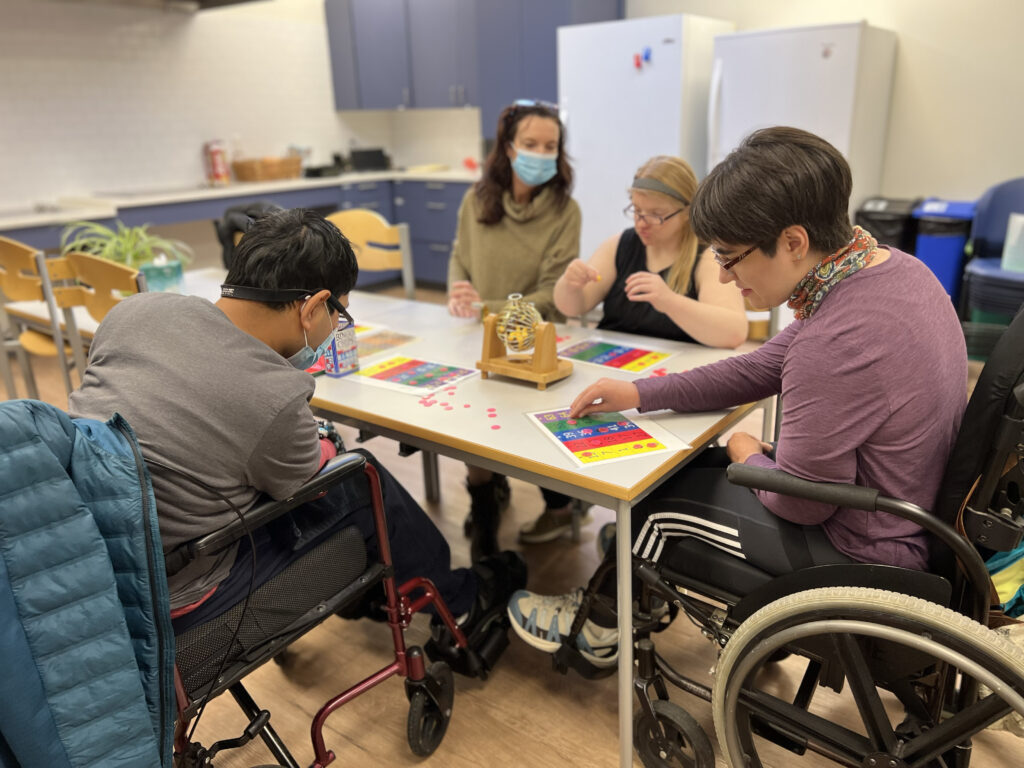
People gathered around a table together during a peer group activity
Living with a disability can often lead to feelings of isolation, frustration, and helplessness. Peer support groups address these issues by providing a safe space for individuals to share their experiences without fear of judgment. This sense of community can significantly alleviate feelings of loneliness and promote a sense of empowerment.
Peers also offer resources and experiences that help each other navigate their individual journeys to independent living. The Independent Living philosophy is that individuals with disabilities who have successfully navigated barriers and attained a level of independence are empathic and experienced to mentor and support others. By sharing their real-world experiences, they foster a sense of community and empowerment.The collective wisdom of the group helps individuals develop coping strategies, build resilience, find resources, and maintain a positive outlook on life.
But it’s not all about problem solving. Peer Support is a place to have fun, connect, make friends, share stories and experiences, and plan recreational activities such as walks, going out to eat, movies and more.
All together, Peer Support is a community of people who share their successes and challenges, encourage each other and celebrate with each other, and work together to achieve and maintain independent living and a good life.
CPWD’s Peer Support Groups
CPWD offers multiple Peer Support groups tailored to meet the diverse needs of the disability community. These groups cover a range of topics, including:
Beyond Vision
CPWD’s Beyond Vision program is a specialized initiative designed to support individuals who are blind or visually impaired. This program integrates Peer Support by connecting participants with others who have similar experiences, fostering a community where they can share challenges, strategies, and successes. By participating in Beyond Vision, individuals not only receive practical assistance but also build relationships that offer emotional support and encouragement. Here are specific groups in the Beyond Vision program:
-
- Don’t Let Low Vision Get You Down with Beyond Vision – meets every second Tuesday of the month at 1 p.m.. This is a support group on the topic of mental health and wellness for individuals experiencing vision loss.
- Low Vision & Hard of Hearing Peer Support Group with Beyond Vision – meets every other month, on the third Thursday of the month at 1 p.m. This group covers topics for individuals who are both visually impaired and hearing impaired.
- No Light Perception Peer Support Group – meets the 3rd Tuesday of the Month at 10:00am. The No Light Perception(NLP) Group is a Peer Support group for those people who have little to no vision. Topics in this Peer Support group will be directed towards Independent Living with either minimal to no light perception in residual vision, completely blind, progressive eye disease that will result in blindness and those individuals who have experienced sudden vision loss that has resulted in blindness.
- Low Vision Bingo – Join this group for four rounds of Bingo while learning about contrast, tactile labeling, and Eccentric Viewing Skills.
- Creative Corner with Beyond Vision – Join this group to discuss engaging in hobbies and arts while having low vision. Take time with the group to practice a creative project.
To learn more and see the schedule for these groups, visit our Services Calendar page. Contact [email protected] to sign up for any of these groups.
Skills Training Groups
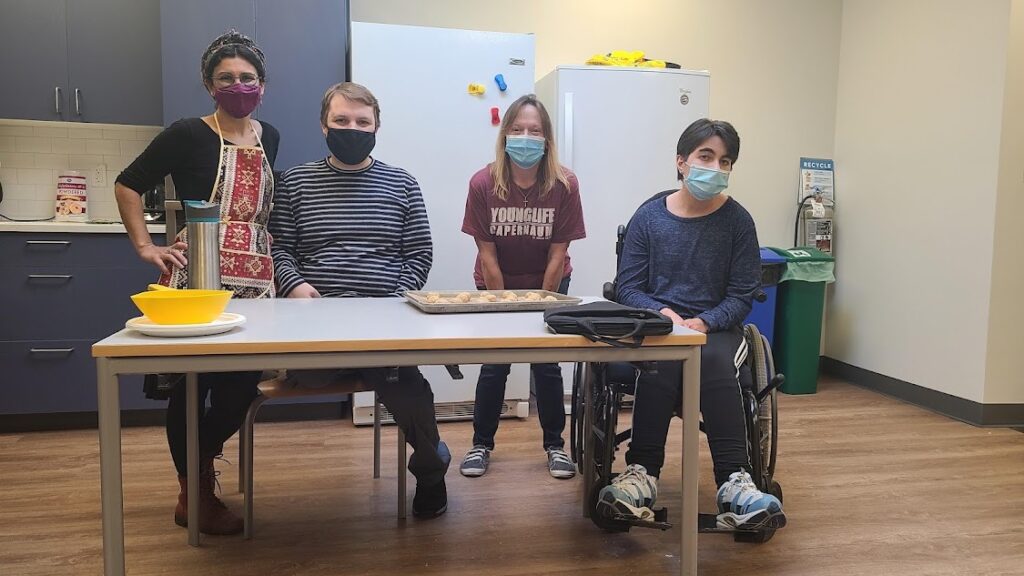
Staff and consumers practice cooking during a skills training group.
These groups meet every Wednesday to practice practical life skills such as cooking, gardening, communication, pottery, hygiene, and more. Each week touches on a different theme, and brings peers together to connect and learn from one another. See the topic of the week on our Services Calendar page.
Movement and Mindfulness
This group meets every Wednesday from 2:30 – 4pm This seated class features gentle movements to stimulate your joints and enhance deep breathing. Engage in brain-balancing activities and exercises to help regulate your body and emotions. It’s followed by peer gathering time to socialize.
Game Time Online
This group meets every Tuesday at 3:30 online. Each week they play a virtual version of a classic game. They play a variety of games: Jeopardy, Trivia, Name that Tune, Celebrity Guess Who, Hangman, and many more. Some are individual games and some are set up in teams, with a small prize mailed to the winners.
If you or someone you know could benefit from CPWD’s Peer Support groups, getting involved is easy. Visit our Services Calendar page to see the schedule and learn more about the different groups available and how to join. Participation is open to all, and CPWD strives to make its services as accessible as possible. CPWD staff members are always available to help register for groups.
During Mental Health Awareness Month, it’s important to highlight the unique mental health challenges faced by people with disabilities and the effective support available through organizations like CPWD. Peer support groups offer a lifeline, providing emotional support, practical advice, and a sense of community. By connecting with others who understand their journey, individuals with disabilities can build resilience, improve their mental health, and lead more fulfilling lives.


